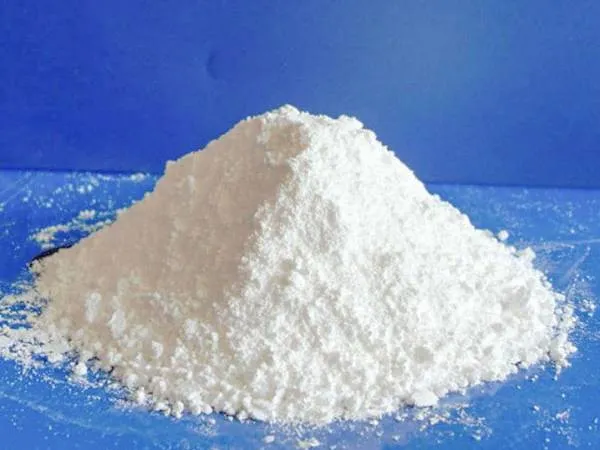



Barium Carbonate: Trusted Chemical for Industrial Use
Barium carbonate CAS No is 513-77-9, a globally recognized identifier used in scientific and industrial references. This CAS number guarantees chemical accuracy when sourcing or applying this compound. Whether in chemical databases, safety data sheets, or procurement platforms, the barium carbonate CAS No ensures you’re working with the correct substance. This level of certainty is essential for industries like ceramics, electroplating, and pigment manufacturing, where precise chemical identity matters.

Barium Carbonate Powder and Its Applications
Barium carbonate powder is a fine, white, odorless substance used widely in industrial chemistry. It plays a crucial role in the production of specialty glass, ceramics, porcelain glazes, and ferrites. In water treatment and brick manufacturing, barium carbonate powder is also used to remove sulfates and prevent efflorescence. Easy to blend and mix, it’s also vital for controlling contaminants and modifying glaze behavior in pottery. Consistent particle size and high purity make it ideal for various industrial needs.
Barium II Carbonate in Chemical Processes
Barium II carbonate refers to the divalent (2+) oxidation state of barium combined with carbonate. This compound interacts with sulfates to produce barium sulfate, especially in environments where sulfate reduction is critical, such as in chromium electroplating. Barium II carbonate is also used to precipitate heavy metals and to balance ion ratios in electrochemical baths. Its alkaline properties support pH regulation and neutralization of acidic waste streams.
Carbonate Barium in Material Manufacturing
Carbonate barium, another common term for barium carbonate, is an essential ingredient in glassmaking and ceramic production. It serves as a flux, improving glass clarity and glaze texture. In the brick industry, carbonate barium neutralizes sulfate compounds that would otherwise stain the finished product. Due to its reactivity and low solubility in water, it’s also preferred for stabilizing compounds in pigments and ceramic colors. Carbonate barium is widely recognized as a practical raw material in construction and craft industries.
CAS 513-77-9 Market Value and Demand
CAS 513-77-9, which defines barium carbonate, remains in strong demand across multiple industrial sectors. It's used in the preparation of barium salts, glass manufacturing, and electroplating baths. As environmental controls grow stricter, CAS 513-77-9 has become even more important in water purification and heavy metal treatment. The compound’s value also comes from its historical significance—sourced from witherite, a naturally occurring barium mineral named after William Withering. Today, this legacy compound continues to drive innovation and efficiency in modern manufacturing.
Barium Carbonate Powder FAQs
What is barium carbonate used for?
It’s used in the glass, ceramic, and brick industries, as well as in water treatment, electroplating, and manufacturing of barium salts.
Is barium carbonate toxic?
Yes, it can be toxic if ingested or inhaled in large amounts. Always follow safety protocols and use proper PPE during handling.
What does CAS 513-77-9 mean?
It is the Chemical Abstracts Service registry number for barium carbonate, ensuring accurate identification in procurement and research.
Where is barium carbonate found naturally?
It occurs in the mineral witherite, commonly found in lead ore veins in places like Northumberland, Cumbria, and Lancashire in the UK.
How can I order high-purity barium carbonate?
Visit our company website to view product grades, request technical sheets, or place a direct order for barium carbonate powder that suits your industrial needs.
Whether you're working in electroplating, ceramics, water purification, or glassmaking, бариев карбонат continues to be one of the most practical and reliable compounds available. Its historical roots and modern utility make it indispensable in both traditional and high-tech industries. Explore our high-grade options and order today through our website—quality, consistency, and professional support await your next project.
-
How and Why to Disinfect Water Softeners for Safe, Reliable WaterНовиниNov.24,2025
-
Effective Deionized Water Disinfectant Solutions for Healthcare & Industrial UseНовиниNov.24,2025
-
Commonly Used Disinfectant for Drinking Water – Global Uses & InnovationsНовиниNov.23,2025
-
Chemical to Disinfect Water – Essential Solutions for Safe, Clean Drinking WaterНовиниNov.23,2025
-
Blue Water Disinfectant: Safeguarding Global Water Quality with InnovationНовиниNov.22,2025
-
Bleaching Powder for Water Disinfection – Affordable & Effective Water Treatment SolutionНовиниNov.22,2025
-
Bleaching Powder Drinking Water: Effective, Affordable Disinfection WorldwideНовиниNov.21,2025










